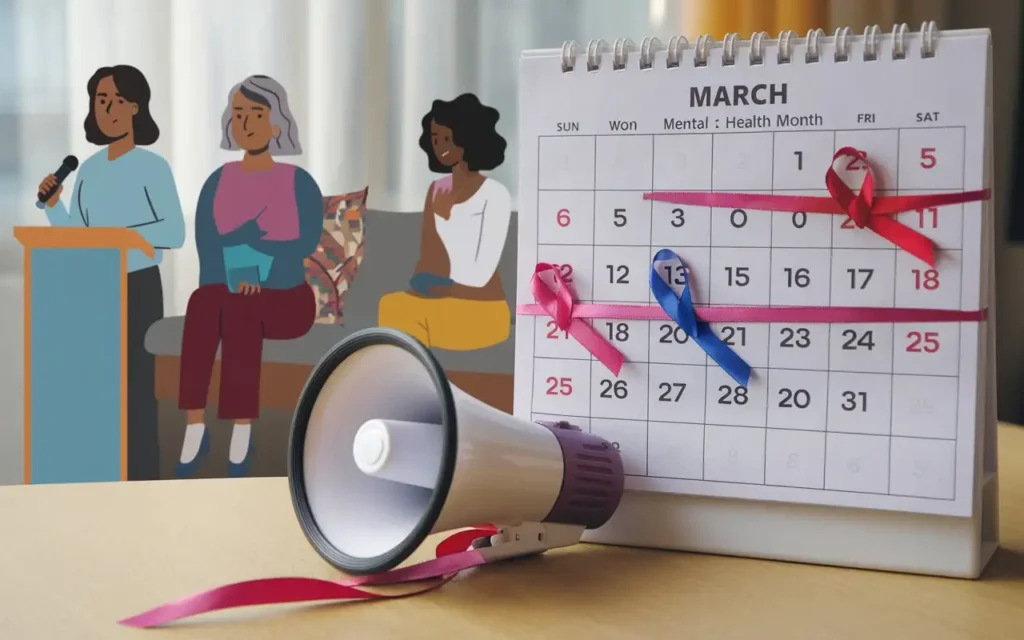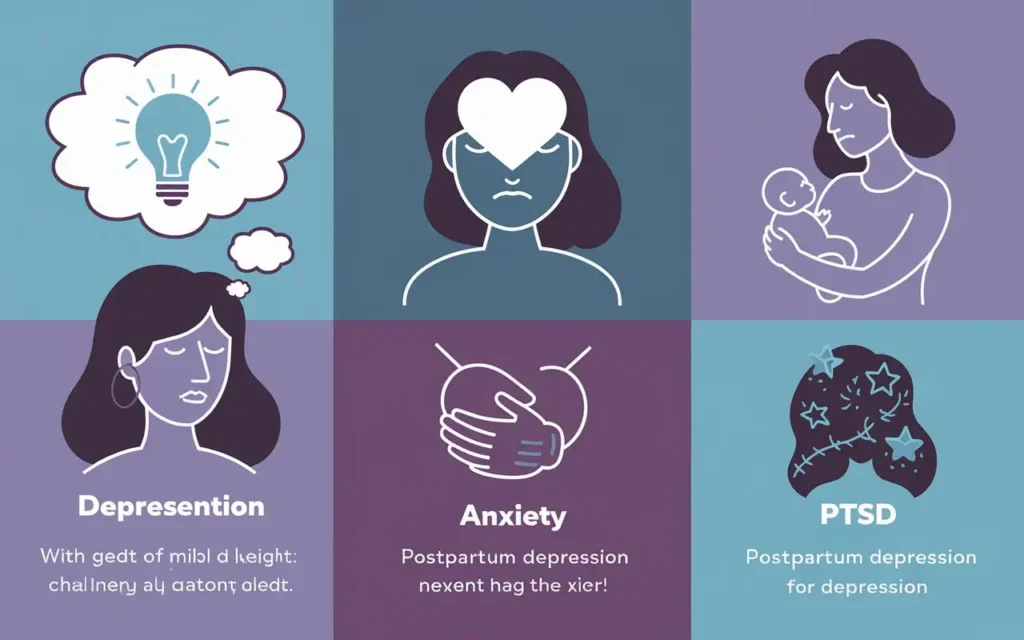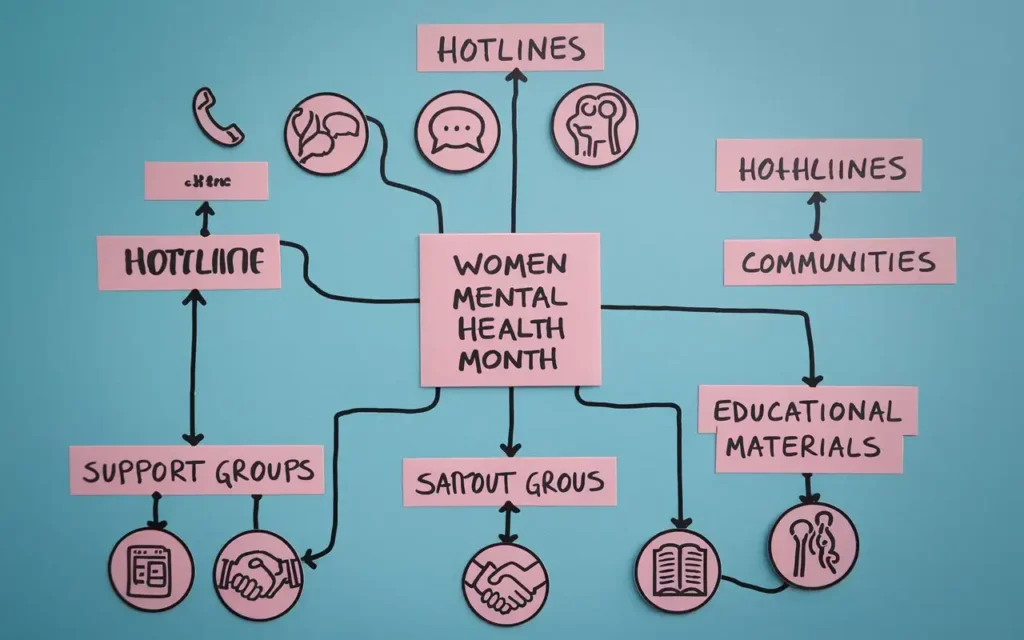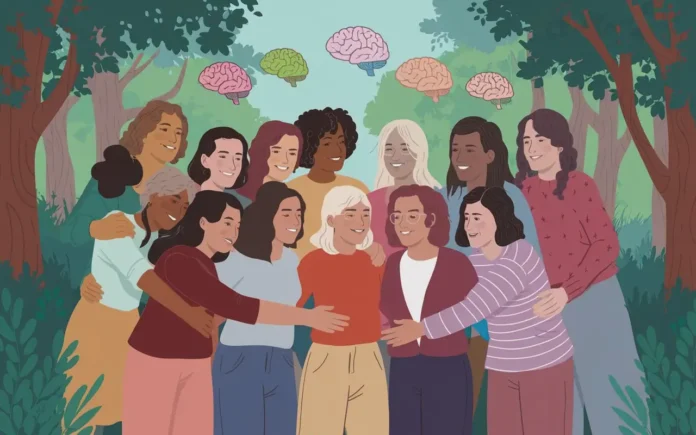Women Mental Health Month: Empowering Women Towards Better Mental Well-Being
Welcome to our comprehensive guide on Women Mental Health Month. This month serves as a pivotal time to shed light on the unique mental health challenges women face and to promote strategies for achieving optimal mental well-being.
Table of Contents
- 1. The Importance of Women Mental Health Month
- 2. Common Mental Health Challenges Faced by Women
- 3. Strategies for Improving Mental Health in Women
- 4. Resources and Support Systems for Women
- 5. How to Advocate and Participate in Women Mental Health Month
- 6. Conclusion
1. The Importance of Women Mental Health Month

Women Mental Health Month is essential because it provides a dedicated time to recognize and address the mental health issues that uniquely affect women. This month aims to raise awareness, reduce stigma, and promote resources tailored to women’s mental well-being.
During Women Mental Health Month, various organizations and communities come together to highlight the importance of mental health care for women, ensuring that their voices are heard and their needs are met.
Why Focus on Women’s Mental Health?
- Women are more likely to experience certain mental health conditions, such as depression and anxiety.
- Societal pressures and gender roles can contribute to increased stress and mental strain.
- Access to mental health resources specifically designed for women can improve outcomes.
Historical Context
The recognition of Women Mental Health Month has grown over the years, reflecting a broader societal shift towards acknowledging and addressing gender-specific mental health issues. This movement aligns with global efforts to ensure mental health is prioritized for all genders.
2. Common Mental Health Challenges Faced by Women

Women Mental Health Month is a crucial time to delve into the specific mental health challenges that women encounter throughout different stages of their lives.
Depression and Anxiety
Women are statistically more likely to suffer from depression and anxiety disorders compared to men. Hormonal changes, societal expectations, and life stressors contribute to this disparity.
Postpartum Depression
After childbirth, many women experience postpartum depression, a severe form of depression that can affect their ability to care for themselves and their newborns.
Eating Disorders
Eating disorders such as anorexia and bulimia are more prevalent among women, often influenced by societal beauty standards and self-esteem issues.
Trauma and PTSD
Women are more likely to experience trauma, including domestic violence and sexual assault, which can lead to post-traumatic stress disorder (PTSD).
Workplace Stress
Balancing professional responsibilities with personal life can lead to significant stress, impacting women’s mental health in the workplace.
3. Strategies for Improving Mental Health in Women

Women Mental Health Month highlights various strategies that women can adopt to enhance their mental well-being. Implementing these strategies can lead to significant improvements in overall quality of life.
Self-Care Practices
Engaging in regular self-care activities is vital for maintaining mental health. This includes activities such as meditation, exercise, and hobbies that bring joy and relaxation.
Seeking Professional Help
Therapy and counseling can provide women with the tools to manage their mental health effectively. Professional support is crucial for those experiencing severe mental health issues.
Building Support Networks
Having a strong support system of friends, family, and community can help women navigate their mental health challenges more effectively.
Healthy Lifestyle Choices
Maintaining a balanced diet, regular physical activity, and adequate sleep are fundamental components of mental health.
Stress Management Techniques
Techniques such as time management, mindfulness, and relaxation exercises can help women manage stress levels effectively.
4. Resources and Support Systems for Women

Women Mental Health Month serves as an excellent opportunity to explore the myriad resources available to support women’s mental health.
Hotlines and Crisis Support
Immediate support can be accessed through various hotlines designed to assist women in crisis situations. These services provide confidential and professional help 24/7.
Online Platforms and Communities
Online forums and communities offer a space for women to share their experiences, seek advice, and find solidarity with others facing similar challenges.
Support Groups
Joining a support group can provide women with a sense of community and understanding, facilitating recovery and mental well-being.
Educational Resources
Accessing educational materials about mental health can empower women with the knowledge to recognize and address their mental health needs.
Professional Services
Therapists, counselors, and mental health professionals offer tailored services to help women manage and improve their mental health.
5. How to Advocate and Participate in Women Mental Health Month

Women Mental Health Month encourages individuals and organizations to advocate for better mental health support for women and participate in activities that promote awareness and change.
Raising Awareness
Share information about women’s mental health on social media, participate in events, and educate others about the importance of mental health care for women.
Supporting Initiatives
Contribute to or volunteer with organizations that focus on women’s mental health, helping to expand their reach and impact.
Organizing Events
Host workshops, webinars, or community events that address mental health topics relevant to women, fostering a supportive environment.
Advocating for Policy Changes
Engage with policymakers to advocate for mental health policies that support women’s unique needs, ensuring access to necessary resources and services.
Personal Advocacy
Encourage open conversations about mental health within your personal circles, reducing stigma and promoting a culture of support.
6. Conclusion
Women Mental Health Month is a vital time to focus on the mental well-being of women, recognizing the unique challenges they face and promoting strategies and resources to support them. By raising awareness, advocating for change, and providing comprehensive support, we can empower women to achieve better mental health and lead fulfilling lives.
Take Action Today
Whether you’re participating in events, sharing information, or seeking support, every action counts towards improving women’s mental health. Let’s work together to create a world where every woman has the resources and support she needs to thrive mentally and emotionally.
References
- Women’s Health – Mental Health
- National Institute of Mental Health: Women’s Health
- CDC – Mental Health
- Mental Health Foundation




